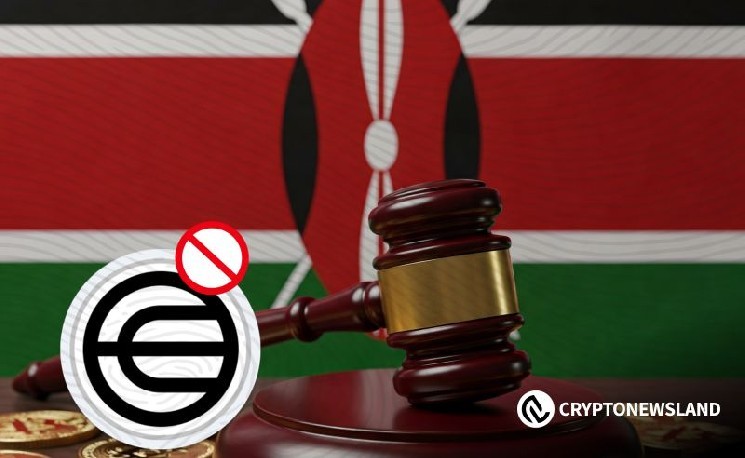
Kenya’s Finance Act 2025 replaces the Digital Asset Tax with excise duty on crypto platform service fees. The VASP Act mandates registration, KYC compliance, and Kenyan board representation for all crypto firms. Coordination between the CBK and CMA will guide implementation as Kenya strengthens regulation of its crypto sector. Kenya has introduced a major change to its cryptocurrency taxation system, replacing the Digital Asset Tax with an excise duty on platform fees. The reform, part of the Finance Act 2025, aims to align the country’s approach to digital asset taxation with international standards. The adjustment follows the enforcement of the Virtual Asset Service Providers (VASP) Act, which formalizes how crypto businesses operate under the Central Bank of Kenya’s oversight. New Tax Model Targets Service Fees Under the new framework, a local report confirms that licensed crypto exchanges and brokers will pay excise duty on fees and commissions charged to users. The earlier system, which imposed a three percent tax on the total transaction value, has been repealed. Officials say the shift better reflects how digital asset platforms earn revenue. The Kenya Revenue Authority (KRA) worked with industry representatives to refine the model, ensuring a system based on service charges rather than asset value. Industry participants have expressed support for the revised policy. GoChapaa’s Chief Marketing Officer, Philip Chege, said the move resolves long-standing concerns about fairness and practicality in crypto taxation. He confirmed that digital asset companies engaged in discussions with the KRA and legal experts during the drafting process. Chege stated that dialogue between regulators and stakeholders created a cooperative environment for shaping the new structure. VASP Act Enforces Regulatory Standards The VASP Act, which took effect this year, requires all virtual asset platforms to register with the Central Bank of Kenya. Registered entities must maintain physical offices, implement Know Your Customer (KYC) procedures, and include Kenyan nationals on their boards. The law also enforces anti-money laundering and counter-terrorism financing standards consistent with the Financial Action Task Force guidelines. These measures establish Kenya’s framework for accountability in the digital asset sector. Implementation of the tax and registration measures will depend on coordination between the Central Bank of Kenya and the Capital Markets Authority. The two agencies are going to take care of the licensing, compliance, and reporting processes for the service providers. The analysts believe that the organized method will not only make supervision more formal but also ensure that the right amount of tax is collected from the rapidly evolving crypto market. As per the data from Chainalysis, Kenya is the third-largest country in Africa in terms of overall cryptocurrency usage and the first in peer-to-peer trading volumes. Now that the taxation and licensing frameworks are clearly defined, the government is planning to make the digital finance sector more compliant and transparent without slowing down its growth.
Canton Network Welcomes Solv Protocol to Boost Institutional BTC and RWA Growth
46 min ago
Is this the end of the Pi Network price plummet?
47 min ago
Price predictions 11/3: SPX, DXY, BTC, ETH, XRP, BNB, SOL, DOGE, ADA, HYPE
48 min ago
Onchain Analyst: Long-Sleeping Bitcoin Whale Resurfaces, Shifting 2,300 BTC to Paxos Wallet
56 min ago
Bitcoin Miners IREN, Cipher Rise After Multi-Billion-Dollar Microsoft, Amazon Deals
56 min ago
Bitcoin faces shaky support as institutional buying wanes
56 min ago